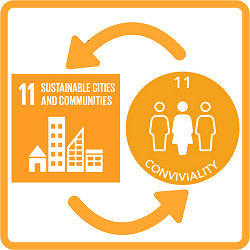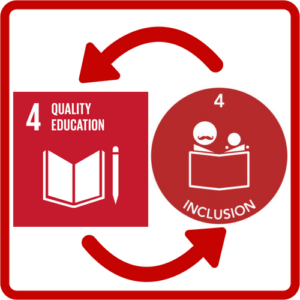THE SENSE OF PLACE : a Mediterranean interpretation
THE SENSE OF PLACE
‘Tourism can only compound the degradation of hospitality, because a part of the Mediterranean and African population has given up offering traditional hospitality, in order to spoil unaware tourists, who do not know the value of thing or of currency.
Not only we are living an economic crisis (…) All civilizations are enduring a crisis. Traditional civilizations are split between tradition and modernity, between going back to origins and westernization(…) This is a deep historical crisis.
Urban heritage conservation is also a strong economic driver in both the Global North and Global South. In Europe, built heritage renovation and maintenance represents 27.5 percent of the value of the continent’s construction industry. The development of sustainable cultural tourism can also serve as a catalyst for revenue generation to upgrade urban infrastructure, especially in developing countries. Today, tourism represents 9% of the world’s Gross Domestic Product (GDP), with 40 percent of all trips including a cultural element.
Creativity and innovation, including digital technologies, should be fostered as resources for sustainable urban development and aim to improve local livelihoods. Safeguarding and promoting culture at the local level is a way to develop endogenous resources and create conditions for sustainable revenue generation.
(…) the ‘Convivalist Manifesto’ movement focuses on the conviviality virtues of acknowledging the others, in a time of anonymity and of missing courtesy, which shape our lives (‘Shaping The Future Of Our Cities’by Irina Bokova UNESCO Director-General)
The degradation of hospitality, in Irina Bokova’s interpretation, depends on the spectacularization of rites and rituals which have very little to do with real life. The purpose is to transmit the hospitality culture, the ‘sense of place’, that Latin ‘genius loci’ which has made the Mediterranean Basin a melting pot of interweaving cultures, with an extraordinary result of solid, well-structured and easily recognizable Mediterranean system of values.
Th e ‘Sense of Place’: a main issue, on a Planet with an ever-growing population. Easily moving from one place to the other and harassing sustainable survival for future generations. Goal #11(Sustainable Cities and Communities) of the Sustainable Global Goals (2030 Agenda) focuses on the urban growth being sustainable only when it preserves the ‘sense of place’ as the tangible and intangible heritage of cultures which tourism activities should correctly translate, in order to turn visitors into ambassadors and supporters.
e ‘Sense of Place’: a main issue, on a Planet with an ever-growing population. Easily moving from one place to the other and harassing sustainable survival for future generations. Goal #11(Sustainable Cities and Communities) of the Sustainable Global Goals (2030 Agenda) focuses on the urban growth being sustainable only when it preserves the ‘sense of place’ as the tangible and intangible heritage of cultures which tourism activities should correctly translate, in order to turn visitors into ambassadors and supporters.
The Mediterranean lifestyle is an intangible heritage (UNESCO Protocol #884 – the Mediterranean Diet): It requires true human presence and not only professional digital marketing and exhibitions. It fosters empathy and acceptance of people’s needs, no matter who they are, where they come from. It is a peace breakthrough, expressing itself with concrete actions of conviviality.
Practising conviviality also means to share everyday life, even in less pleasant aspects. Being aware of difficulties and participating to daily activities (harvesting, for example) make it even a true memorable experience for newcomers. It means to innovate and to re-invent the cultural heritage with all efforts and work that it may require. Being a tourist is not simply to do nothing and strolling around… It means engagement and personal commitment, it means to enjoy the pleasure of participating to shared projects and be able to transmit this special feeling when at home.
The lin k between past, present and future takes place in a ‘conservation education’, which can only be promoted through inclusion and innovation. Inclusion is, in effects, the Mediterranean response to Goal #4 (Quality Education). It re-generates the ‘sense of place’ and makes it alive. Dialogue is still the dominant tool for transmitting culture and knowledge: Dialogue, the Mediterranean way, is conviviality and inclusion. Greek, Roman, Arabic history witnesses that the Mediterranean Basin is a fusion od know-hows, a geographic place for the creation od a long-lasting and renovating knowledge made up of several contributions during centuries. This is the reason why the Mediterranean Diet, as life style, includes hospitality as a priority for personal wellness and wellbeing.
k between past, present and future takes place in a ‘conservation education’, which can only be promoted through inclusion and innovation. Inclusion is, in effects, the Mediterranean response to Goal #4 (Quality Education). It re-generates the ‘sense of place’ and makes it alive. Dialogue is still the dominant tool for transmitting culture and knowledge: Dialogue, the Mediterranean way, is conviviality and inclusion. Greek, Roman, Arabic history witnesses that the Mediterranean Basin is a fusion od know-hows, a geographic place for the creation od a long-lasting and renovating knowledge made up of several contributions during centuries. This is the reason why the Mediterranean Diet, as life style, includes hospitality as a priority for personal wellness and wellbeing.






No Comments